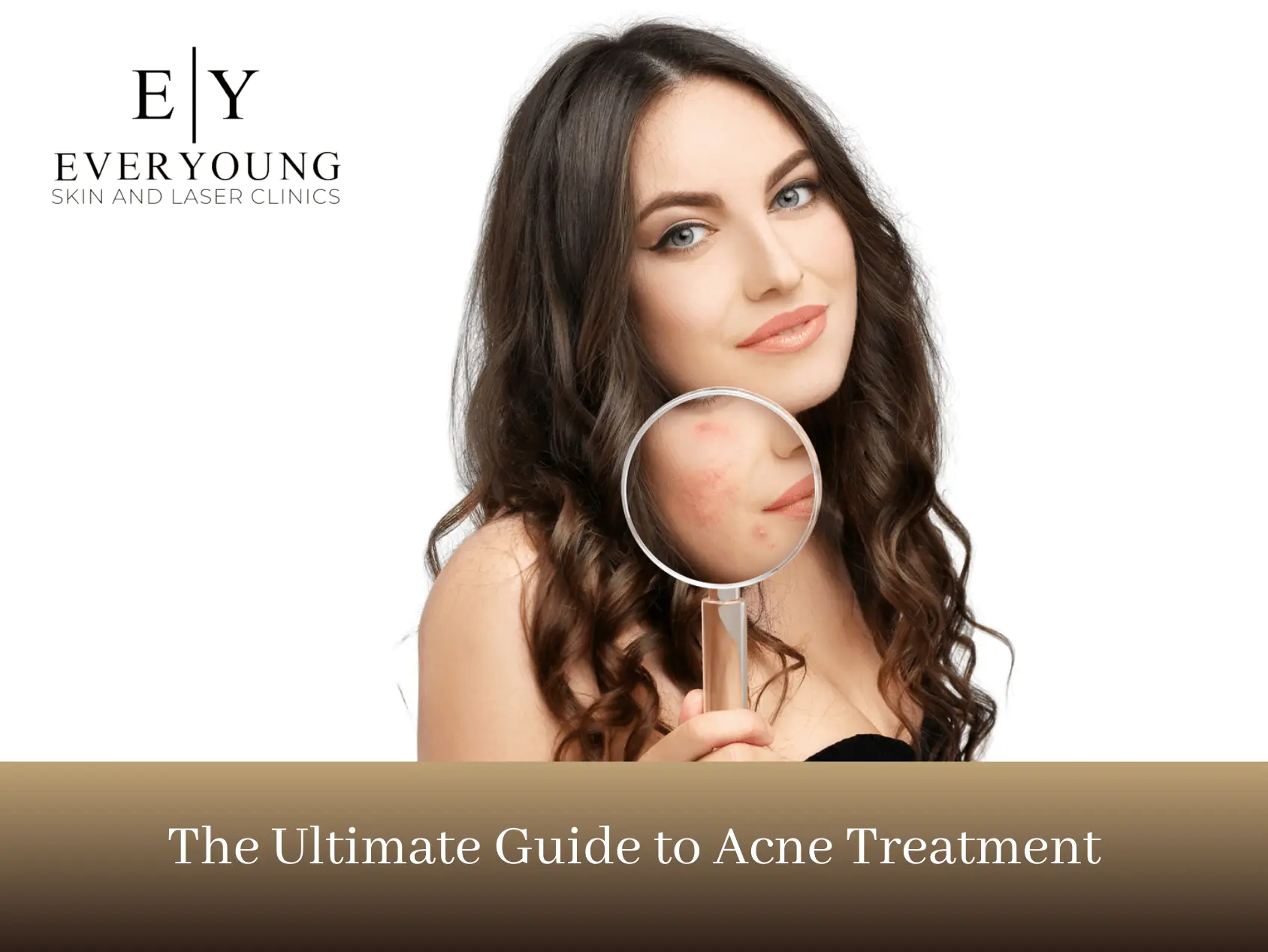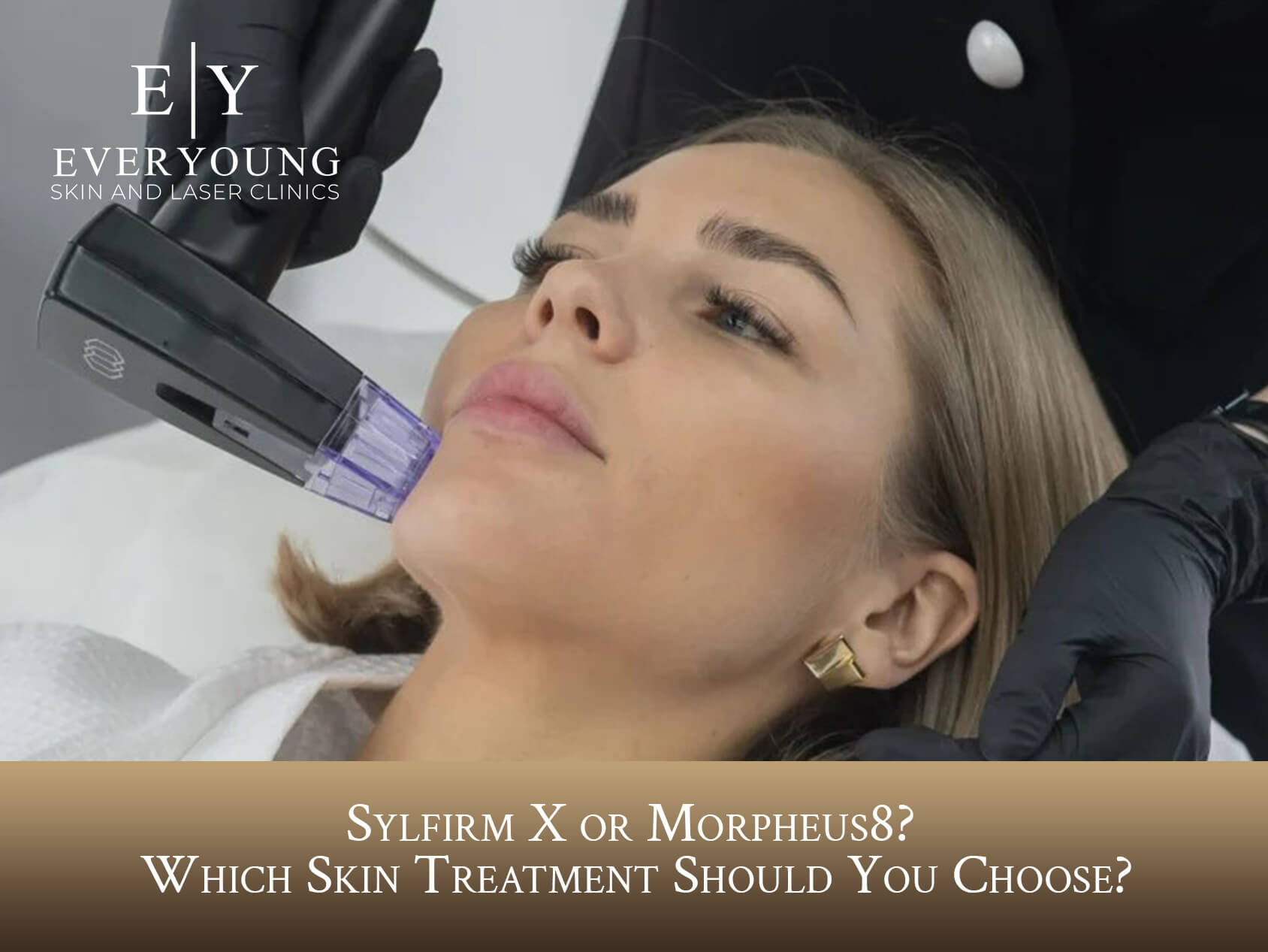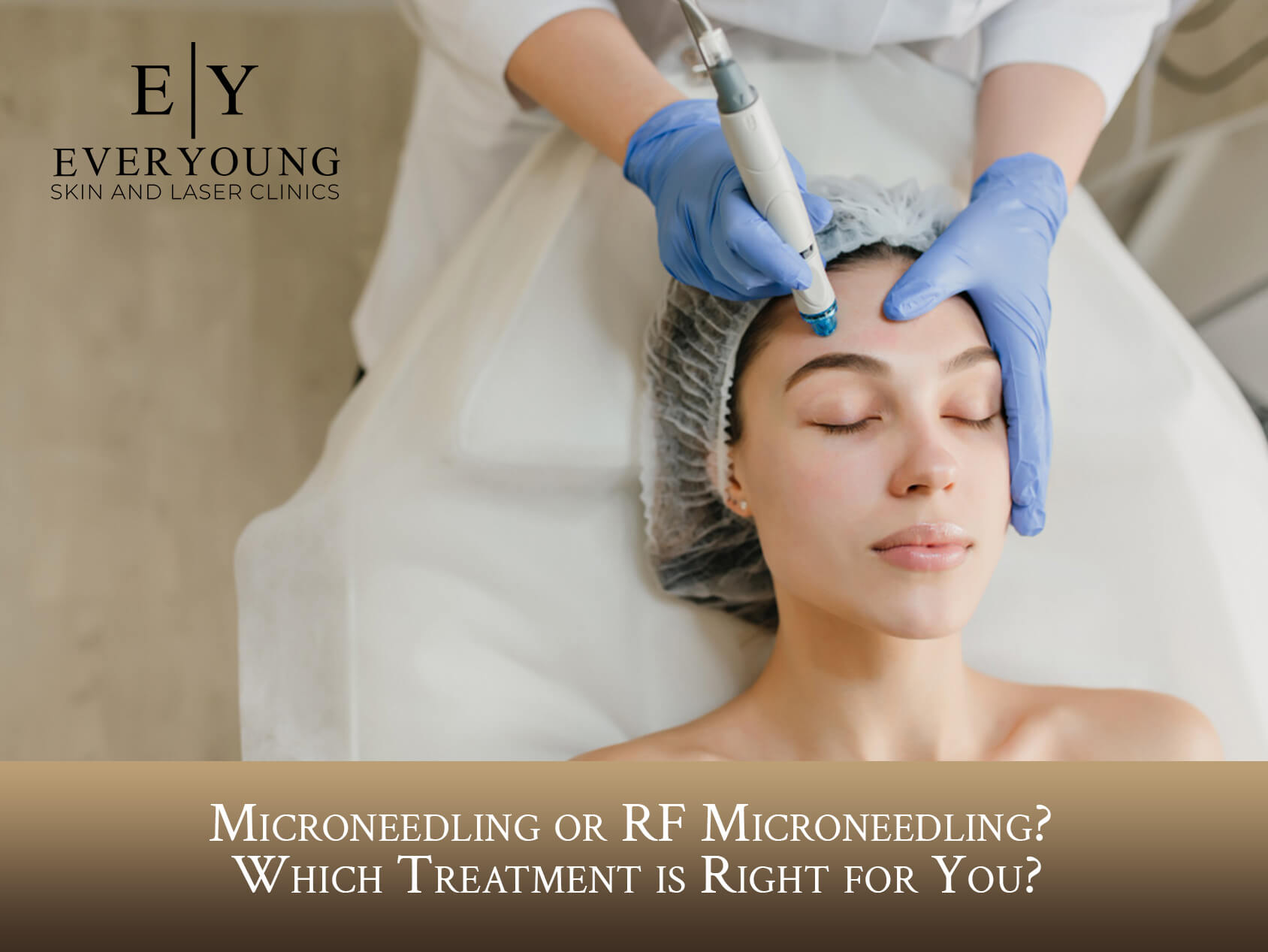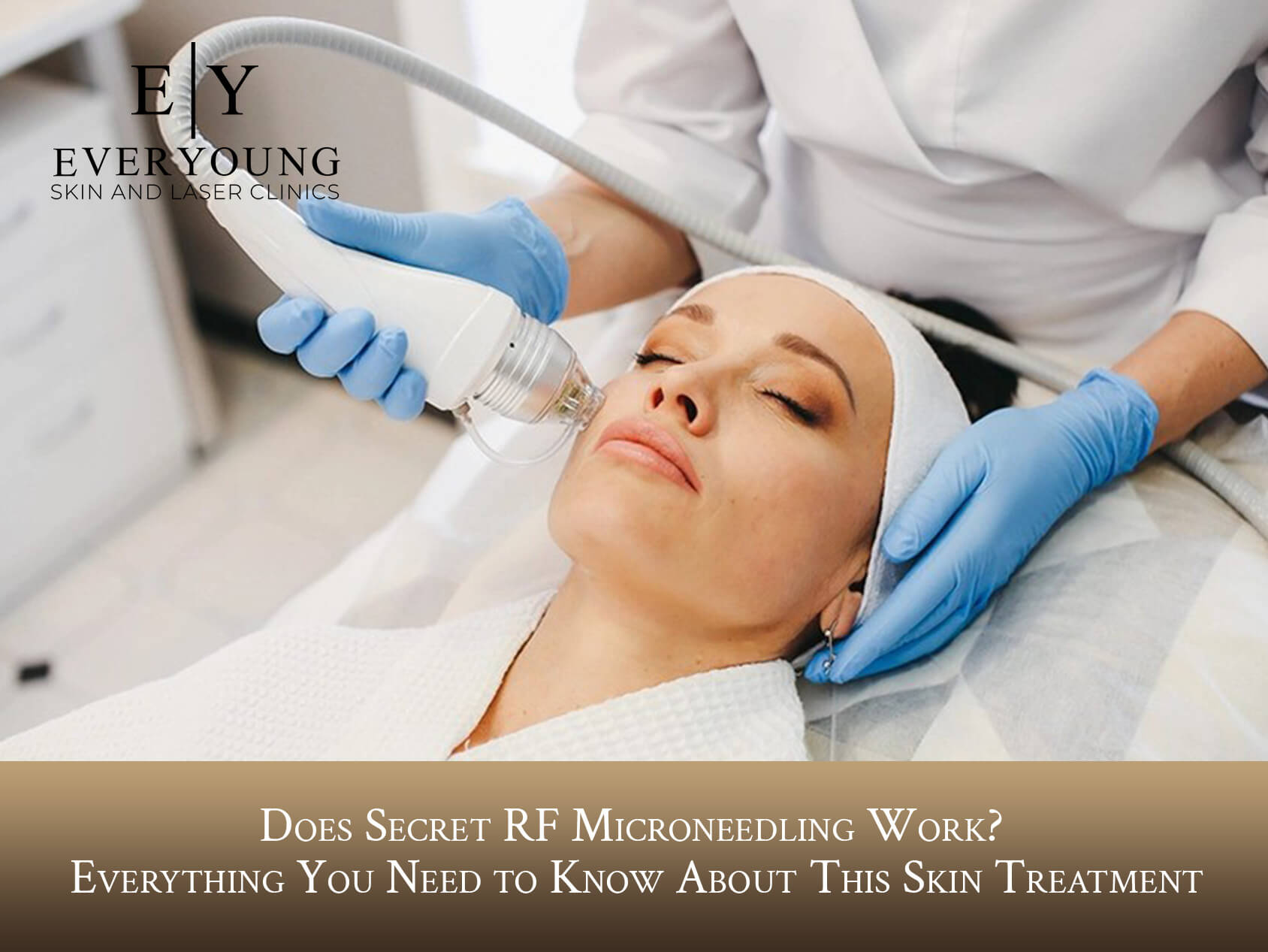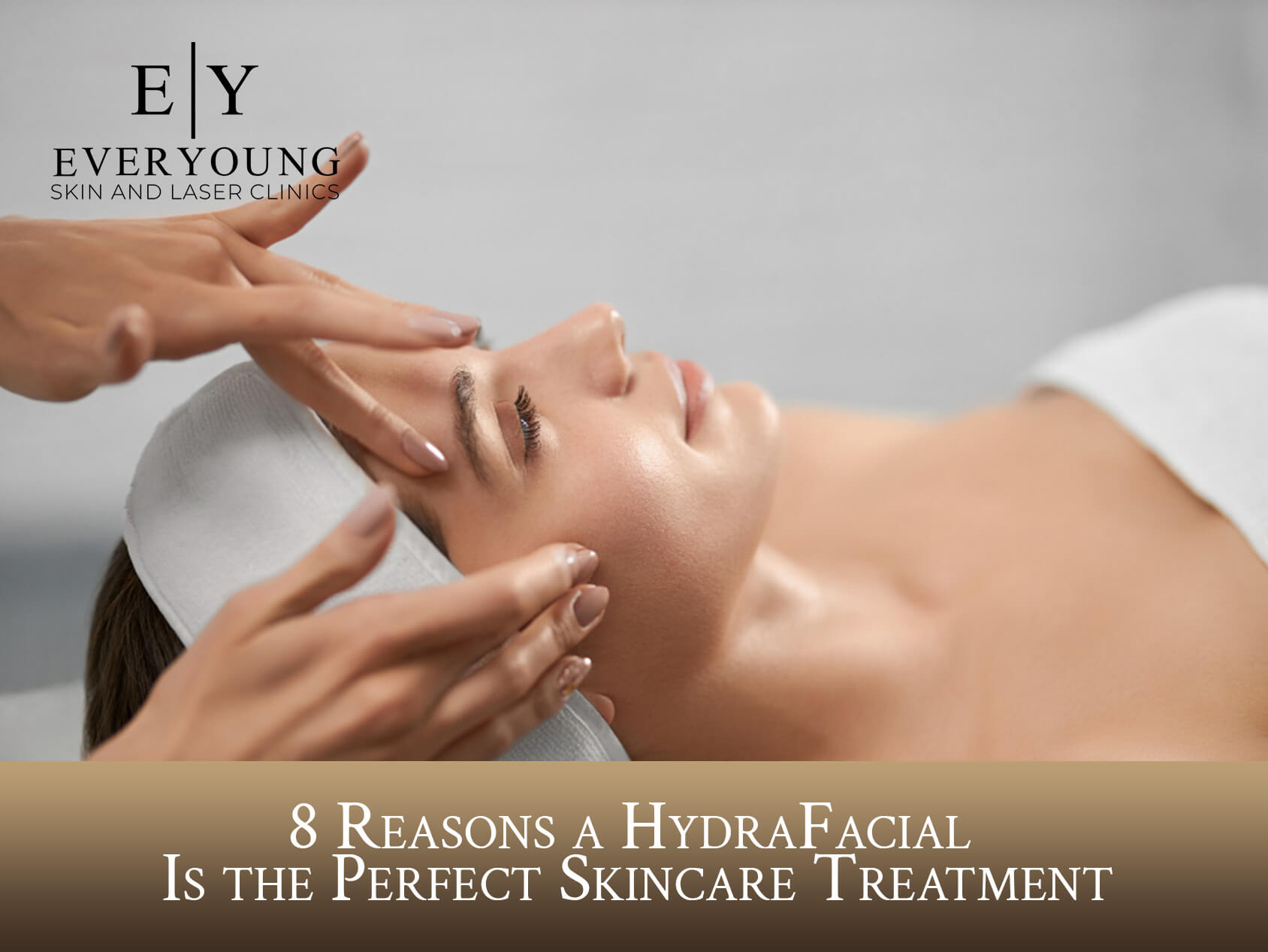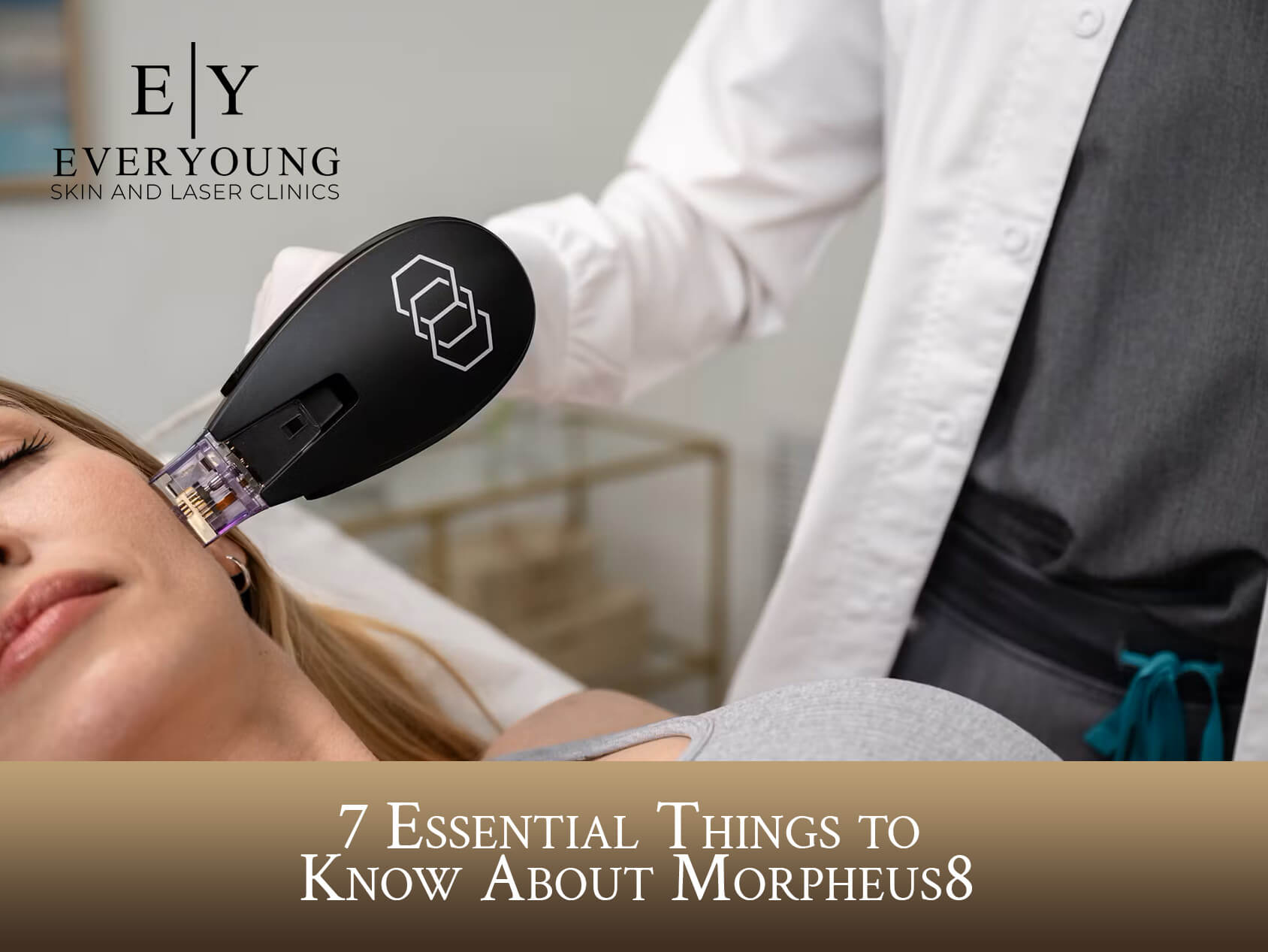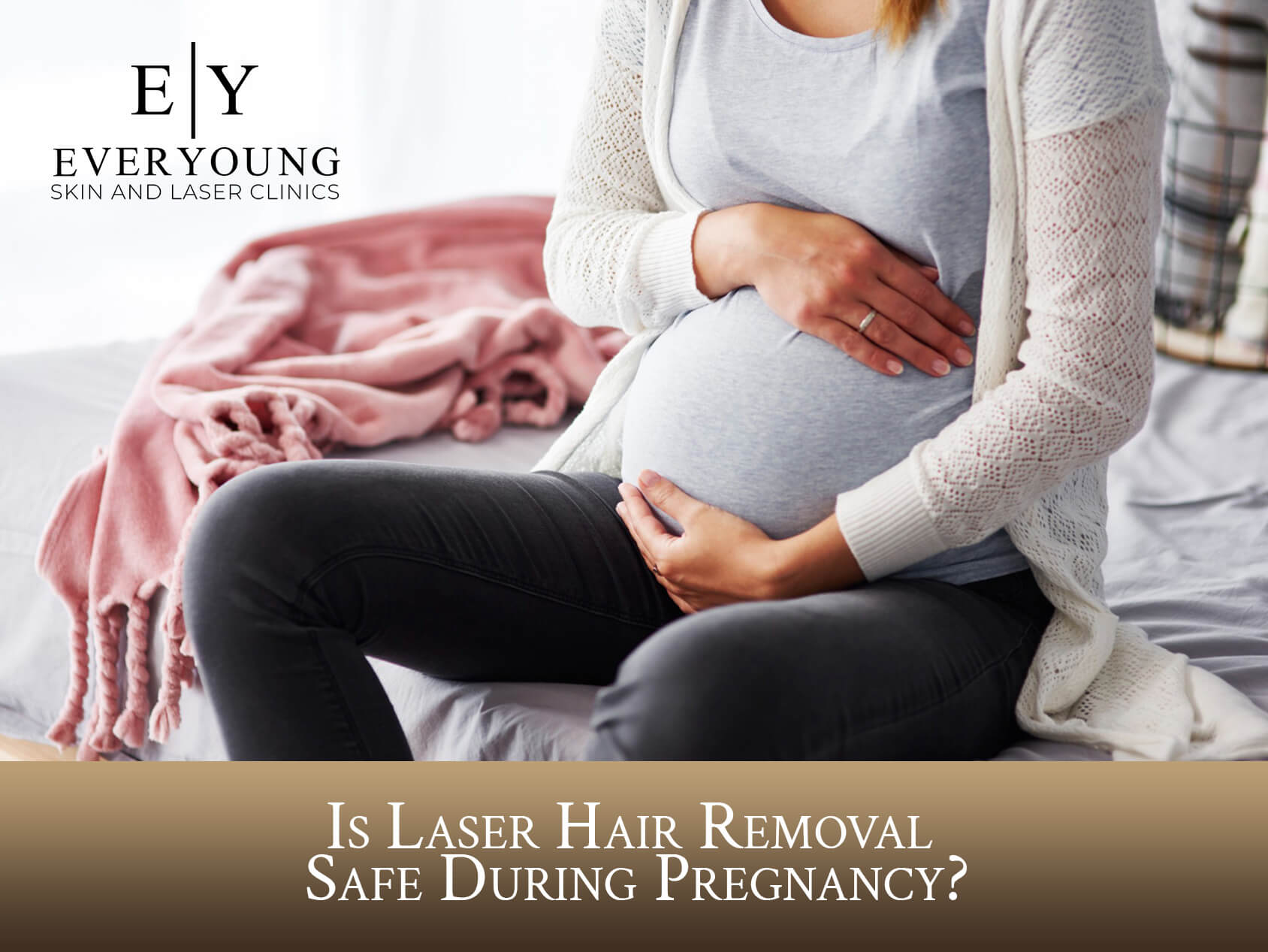The Ultimate Guide to Acne Treatment
Having acne can damage your skin and take a toll on your self-esteem. That’s why it is important to be educated about the causes of acne, different treatment options, and how the condition affects the health of your skin. With the right methods, acne is an easily treatable condition. EverYoung Laser and Skin Clinic want you to understand this skin condition that affects just about everyone, so here is their ultimate guide to acne treatment.
What Is Acne?
Acne is a condition recognizable by the appearance of pimples, blackheads, and whiteheads. In some cases, more severe forms of skin lesions can develop, including cysts and nodules. The condition can affect various parts of the body but most commonly appears on the face, upper back, chest, or shoulders. Acne most often affects teenagers and young adults. However, anyone can be affected by the problems that come with the condition.
Your personalized acne clearing routine that you need to follow for better results
What Types of Acne Exist?
There are various types of acne. Understanding each one can help you decide on the best form of treatment for your skin condition.
Whiteheads (Closed Comedones)
Whiteheads manifest as small, pale bumps on your skin’s surface. They emerge when hair follicles get clogged with a combination of oil and dead skin cells. Unlike their counterparts, these non-inflammatory nuisances remain closed at the surface, sparing you the redness and swelling associated with other acne types.
Blackheads
Blackheads also stem from clogged hair follicles. However, their distinguishing feature is their dark or black appearance, resulting from exposure to the air. Unlike whiteheads, they are open at the surface. They share the non-inflammatory nature of whiteheads, making them less prone to redness and having a distinctive raised appearance.
Papules
The small bumps on your skin that are often pink or red are called papules. These inflammations are your body’s response to hair follicles being blocked with oil and dead skin cells. They can be sensitive to the touch but do not contain pus, and nearly everyone experiences some form of papule breakout in their lives.
Pustules
Pustules are what most people commonly think of as pimples. These red, inflamed bumps have white or yellowish heads filled with pus. Their presence can be hard to ignore, and their inflammatory nature sets them apart from the look of whiteheads and blackheads.
Nodular Acne
Nodules are large, solid bumps that form deep beneath the skin’s surface and are often quite painful to the touch. They arise from severe inflammation and follicular blockage. Unlike other types of acne, nodules seldom come to a head which adds to the discomfort of their presence.
Cystic Acne
Cystic acne also forms beneath the skin’s surface and can be similar in appearance to nodules. However, these cysts will often feel softer or more malleable because they are filled with pus. They are characterized by deep inflammation and often erupt, leading to potential infection and scarring.
Cystic Nodular Acne
Combining the worst of both worlds, cystic nodular acne presents with large painful cysts and nodules. It is often very painful, and unsightly, and, if left unchecked, can leave a trail of severe scarring in its wake.
Pigmentation Issues (Post-Inflammatory Hyperpigmentation)
Sometimes, acne lesions leave behind dark spots or patches on your skin. Post-inflammatory hyperpigmentation (PIH) is a common issue, particularly for individuals with darker skin tones.
Scarring (Acne Scars)
Untreated acne can lead to various types of scarring – boxcar, icepick, rolling, and hypertrophic. Each type of scar has a different shape and texture but they all can affect a person’s self-esteem. There are acne treatments to mitigate the appearance of acne scars, but it is easier to treat the acne before scars can form.
What Causes Acne?
There’s not one sole cause of acne, but multiple factors that increase the likelihood of it appearing. Here are some of the reasons that a person’s risk of developing acne might increase.
Hormonal Changes
Hormonal fluctuations are common, especially during puberty. They increase the production of oil – also known as sebum – in the skin. The higher amounts of oil result in clogged hair follicles and pores that can act as a breeding ground for acne. Pregnancy, menstruation, and certain medications can contribute to hormonal changes, resulting in acne breakouts.
Excess Oil Production
The sebaceous glands in the skin produce sebum (oil) to keep it moisturized. When the glands produce a higher amount of oil, it can mix with dead skin cells and end up trapped in hair follicles. This allows bacteria to thrive and acne lesions to form. Blackheads, whiteheads, and pimples can appear because of the increased moisture exposure.
Bacterial Infection
Bacteria is a key part of acne development. A bacteria called Propionibacterium acne (P. acnes) already resides on the skin. When oil and dead skin cells clog hair follicles, P. acnes can grow, resulting in inflammation and infection within the hair follicles. The bacterial infection is the culprit behind the development of inflamed acne lesions, including papules, pustules, nodules, and cysts.
Dietary Factors
Like it or not, there’s a relationship between what you eat and how your skin looks. Although it’s complex, certain dietary choices can worsen acne. Sugary and processed foods can affect hormone levels and make the skin more oily and inflamed. Some people are also sensitive to dairy products or high levels of iodine in seafood, which can increase the severity of acne.
Genetics
Genetics also contribute to acne. If your parents or relatives have had a history of acne, you may be more likely to develop it. Genetic factors affect how the skin produces oils, responds to hormonal changes, and handles inflammation. Your genes can increase or decrease your chances of getting acne breakouts.
What Acne Treatment Options Are Available?
Acne can cause problems, but thanks to the innovations of modern skincare, there are many ways to treat it, from cosmetic procedures to natural remedies. Here are some of the best acne treatments available.
Acne Treatment Products
Multiple types of acne treatments are available over the counter or with a prescription from your dermatologist. Some of these treatments are more affordable ways to treat the condition, whether you have pimples, blackheads, whiteheads, or other types of acne.
Topical Retinoids
Topical retinoids include tretinoin and adapalene, which are types of vitamin A, an active ingredient that prevents clogged pores by making cells turn over and reducing inflammation. There are creams, gels, and lotions that are perfect for treating mild to moderate acne. Topical retinoids can cause initial skin irritation, but the symptom decreases over time.
Benzoyl Peroxide
Available as an over-the-counter topical treatment, benzoyl peroxide is fundamental for killing acne-causing bacteria and aiding in unclogging pores. There are many creams, gels, and washes containing this ingredient that can act against inflammatory and non-inflammatory acne lesions. However, side effects include dryness and peeling of the skin, so keep this in mind before using it as your primary treatment.
Antibiotics
In some cases, a dermatologist can prescribe antibiotics to treat acne. Topical antibiotics, such as clindamycin, can be applied directly to the skin to reduce inflammation and eliminate bacteria. In more severe cases, oral antibiotics like doxycycline or minocycline can be used to systemically target bacterial growth. Remember to visit your dermatologist for regular check-ups to ensure the treatment goes well.
Salicylic Acid
Salicylic acid is a beta-hydroxy acid (BHA) often found in over-the-counter acne treatments. The ingredient effectively helps unclog pores to reduce the appearance of blackheads and whiteheads. Skincare products, such as cleansers, toners, and spot treatments used to treat acne.
Isotretinoin
Isotretinoin is sold under the brand name Accutane. It is an oral medication prescribed by dermatologists to treat severe cases of acne that haven’t responded to other treatments. How does it work? The medication reduces the production of oil, which prevents clogged pores. There are side effects that come with using this medication, so please speak with a healthcare provider before beginning this prescription.
Cosmetic Acne Treatment Procedures
In some cases, over-the-counter products and prescribed medications don’t quite treat acne fast enough. There are cosmetic procedures that offer relief with minimal amounts of downtime.
Carbon Laser Peels
Getting a carbon laser peel reduces the appearance of acne and acne scars and can also hide fine lines and wrinkles. The treatment uses heat to break up the damage deep within the skin without affecting the visible surface. The treatment eliminates imperfections and increases the growth of new collagen. In the case of acne treatment, the laser heats the sebaceous glands in the skin to reduce the amount of excess oil, which blocks pores and causes inflammation.
Photodynamic Light Acne Laser Therapy
The first step of photodynamic light acne laser therapy is applying a topical solution or gel that contains a photosensitive compound. It sits for a specific period to absorb into the skin. Then, the area affected by acne is exposed to a laser, which produces reactive oxygen species (ROS), damaging and destroying targeted cells and structures. In turn, bacteria are eliminated, oil production decreases, and there is less inflammation in the skin, reducing future breakouts.
Blue Light Therapy
Safe and painless, blue light therapy is quickly becoming an innovation in acne treatment. During the process, blue light can control excess oil in the skin and target bacteria, which is often responsible for inflammation. It stops the bacteria before it has a chance to inflame the skin. The acne treatment gradually clears pimples, blackheads, and whiteheads, improving the skin’s appearance and lowering the risk of future breakouts.
What Signs Indicate the Need To Get Your Acne Treated by a Clinic?
Sometimes, a professional healthcare provider is the best solution for treating more severe cases of acne. If you are experiencing any of the following symptoms, consider visiting one of EverYoung Laser and Skin Clinic’s three locations.
Persistent or Severe Acne
If your acne breakouts last for several weeks or months, consider seeking professional help. If you have tried over-the-counter treatments and your acne worsens over time, visiting a clinic with an experienced dermatologist can be beneficial. Severe acne can appear as deep cysts, painful nodules, or widespread breakouts that impact your self-esteem and overall quality of life.
Frequent Scarring or Hyperpigmentation
Acne or post-inflammatory hyperpigmentation (dark spots) appearing after pimples heal are something to worry about. The marks are difficult to treat with over-the-counter products. A dermatologist can provide targeted solutions to minimize scarring and discolouration.
Painful and Inflamed Lesions
Acne lesions can appear as large cysts or pustules. They are often extremely painful, red, and inflamed and are not something you can treat without the help of a dermatologist. Visiting a clinic will prevent infection and more extensive forms of scarring.
Multiple Types of Acne Lesions
Many types of acne lesions exist, including whiteheads, blackheads, papules, pustules, nodules, and cysts. When these lesions are present, it may indicate a more serious issue that only a dermatologist can address. Discovering the causes behind your condition is essential to finding the correct treatment plan, and eliminating your acne.
Over-the-Counter Products Not Working
Over-the-counter products are a great resource for acne treatment, but they won’t fix everything. If you don’t notice an improvement in your skin’s condition or your symptoms worsen, consult a dermatologist. There may be underlying causes of your acne that can only be diagnosed at a clinic.
Tips To Prevent the Need for Future Acne Treatments
Acne treatments are a great way to eliminate the condition, but there are ways to prevent acne from appearing in the first place. Following some of our tips can help you say goodbye to breakouts. While these pieces of advice will not guarantee the complete elimination of acne, they can reduce the chances of developing the condition.
Maintaining a Consistent Skincare Routine
A consistent skincare routine is the first step to clear and healthy skin. There are basic steps you can take to prevent the development of acne. Cleaning your face twice daily with a non-comedogenic (non-pore-clogging) cleanser to remove dirt, oil, and makeup will help. Then, use a suitable moisturizer to keep your skin hydrated without producing excess oil. Maintaining a regular skincare routine is good for your skin health and reduces the risk of acne breakouts.
Not Touching Your Face
When you touch your face with unwashed hands, you transfer bacteria, dirt, and oils onto your skin, which can clog your pores and cause acne breakouts. Resisting the urge to touch or pick your face will avoid worsening existing acne and the risk of scarring. By being mindful of this habit, you can keep your skin clear and prevent existing acne from worsening.
Using Non-Comedogenic Products
Choose skincare and makeup products that are labelled non-comedogenic and oil-free. These products are less likely to clog the pores and contribute to the development of acne. As with food, you should read the ingredient lists on your skincare products because mineral oil and certain types of silicone can damage your skin. Avoiding products that can be harmful to your skin will keep your pores and skin clear.
A Healthy Diet
You may be familiar with the expression “you are what you eat” and in this case, there is some truth to the idea that your diet affects your skin. A balanced diet includes fruits, vegetables, lean proteins, and whole grains. By limiting your intake of sugary and processed foods, you help decrease your skin’s levels of oil, which is a factor that contributes to acne. Remember to stay hydrated by drinking lots of water. Your skin will thank you later.
Manage Stress Levels
Stress can trigger hormonal changes that can cause acne. Regular exercise, deep breathing exercises, meditation, and yoga can reduce stress levels and are simple activities to incorporate into your daily routine. Getting a good night’s sleep is also essential to your overall well-being and is a surefire way to reduce stress levels. When your body is relaxed, your mind is less stressed, and your skin is less likely to break out or be affected by acne.
Next Steps After Treating Acne To Correct Scarring
Unfortunately, acne can result in scarring. However, you can take steps to improve your skin following treatment. The effects of scarring can be detrimental to one’s self-esteem, but scarring is easily treatable. Here are some of the ways to treat acne scarring effectively.
Fractional Skin Resurfacing
Fractional skin resurfacing is an effective way to restore the skin to its original beauty. Acne scarring can affect your appearance and self-esteem, but this treatment uses radiofrequency energy to target skin imperfections while not touching the surrounding skin. The heat energy removes damage and stimulates collagen and elastin formation to create smooth skin. The treatment can correct the skin’s surface, mid-depths, and deep-depths.
ProFractional Acne Scar Treatment
As stated earlier, acne can easily be treated with skin resurfacing, but the process is also effective on acne scars. The ProFractional uses tiny microchannels to stimulate a healing process beneath the skin. It forms a new collagen base and replaces damaged cells with fresh and healthy tissue. It improves the skin’s colour, tone, and texture, including acne scarring. The device can be set to a different setting depending on the severity of your acne scarring.
Acne Scar Filler
Fillers aren’t just for wrinkles! Dermal fillers are also effective in treating acne scars. The hyaluronic acid in dermal fillers plumps the skin in areas where scarring causes depression in the face. This filling and lifting makes the skin look smoother and eliminates the appearance of acne scars. The treatment also results in a healthier, more youthful appearance.
Discover the Benefits of Acne Treatment With EverYoung Laser and Skin Clinic
If your self-esteem has taken a hit because of acne, consider visiting EverYoung Laser and Skin Clinic. We offer several treatments to help you say goodbye to acne and hello to smooth skin. Our three Medispa clinics in Burnaby, Port Coquitlam, and North Vancouver are here for all your acne treatment needs. Call or book a consultation online today.



